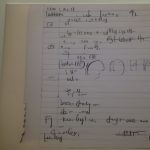How to Sleep Better During the Summer Months

Well, that can be a blessing and a curse. According to one 2016 report from Huffington Post, “Too much sleep on a regular basis can increase the risk of diabetes, heart disease, stroke, and death according to several studies done over the years. Too much is defined as greater than nine hours. The most common cause is not getting enough sleep the night before, or cumulatively during the week.”
When school is out, that can bring with it a false sense of security that you’re going to “catch up” on all the sleep you were missing during the school year. However, doing so can set you on a dangerous course, establishing poor sleep patterns and making it harder to readjust when school (or work in the case of graduates) is back in session.
To make sure you don’t fall into the trap, here are some tips for how to sleep better during the summer months and then take that with you into the new term or next phase of life.
1. Maintain a routine.
While no one would blame you for catching up on missed sleep, that’s really something you can do in a couple of days. You don’t need the entire summer. To avoid turning catch-up sleep into a fall-behind habit, establish a routine that will keep you functional and productive during the summer months.
Try to get eight hours of sleep and no more. Don’t stay up too late, or it will be more difficult to readjust next semester. If you do fall out of the routine a few times along the way, make sure you reestablish yourself as soon as possible. Make the “cheat days” exceptions to the rule.
2. Master sleep cycles.
Sometimes it isn’t about the eight hours. You can actually get a good night’s sleep without reverting to that tried-and-true suggestion. Here’s how you do it. Set your alarm to go off at the end of your REM cycle. REM stands for “rapid-eye movement.” It’s the period of time where you’re in the deepest period of sleep.
Once you’ve hit REM, your body starts working its way out of it. But it’s a gradual process that eases back into a state of consciousness. If you startle yourself out of deep REM, then it’s extremely difficult to regather your bearings.
While this may seem difficult to pull off, it’s really not. What you’ll need to do is this: go to a sleep calculator online. Enter the time you want to go to sleep OR the time you want to wake up. The calculator will then tell you the best time to wake up OR go to sleep. By “go to sleep,” we mean the moment when your consciousness should be in a state of sleep, not simply the time you go to bed.
If you know that it takes you 15 minutes or 20 minutes to go to sleep once you’ve hit the sack, make that adjustment to the recommended times. Try this a few times until you wake up feeling refreshed. Then, replicate your best result.
3. Don’t give yourself more than two ‘cheat days’ per week.
“Cheat days” are important for a couple of reasons. One, they give you permission to act out and catch up on any sleep that you may be missing during the week. Two, they help you stay somewhat on course for the school semester since you’ll always have a minimum of two days — Saturday and Sunday — to sleep in.
Your cheat days give you relief from the routine without veering you so far off-course that you have trouble reacclimating to school when it’s in session.
4. Let there be naps.
If you feel compelled to sleep more during the summer, then make time for it throughout the day in the form of power naps. You’ll have to find the short length that works for you. Mine is 25 minutes. That gives me just enough time to drift off and reenergize before the alarm goes off. It also keeps me from going to bed too late, and it helps me experience a smoother transition to waking up.
5. Get physical.
By maintaining a strong level of physical activity, you’ll keep energy levels regulated to the appropriate degree where it doesn’t adversely affect getting better sleep. Do avoid working out too close to your bedtime, though, because this tends to result in a brief spike in energy levels that make it difficult to fall asleep by the time you’ve determined in your sleep calculator.
On the flip side, working out soon after you wake up can be a great way to make the remainder of your day more productive. This is particularly appealing if you still have interests to pursue and tests to study for during the summer.
6. Use your mind.
An active mind keeps your energy and productivity levels soaring, so don’t let the end of forced productivity (school) keep you from finding interests and activities that produce results. Consider studying something about your field of major over the summer or digging deeper into a hobby. Either way, you’ll engage the part of your brain that makes you feel accomplished, and that makes it much easier to go to sleep at night.
7. Fight temptation.
Summer months bring more freedom. Freedom doesn’t always result in the best decisions. Drugs, excessive drinking, or just staying out too late can all keep you from getting better sleep. Fight the temptations to give in. If you do make allowances, don’t do it every day of the week. Try to insert it in between cheat days so you have the time to recover and rejuvenate.
Sleep Better by Doing the Basics
If you want to sleep better in life, you can’t take too much time off from good sleeping practices. Make sure that you plan to stay on track this summer, and your return to school or work will be easier to deal with. Now your turn. What are some things that help you fall asleep faster? And do you do well on more than eight hours, eight hours, or less? Sound off and share your tips with us in the comments section.
[Featured Image by Flickr Creative Commons]








